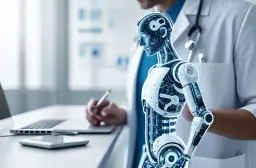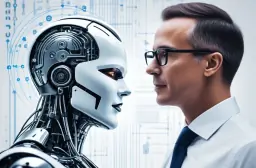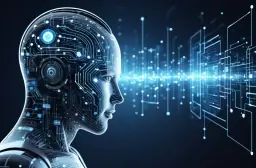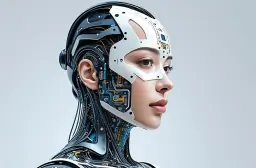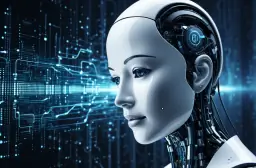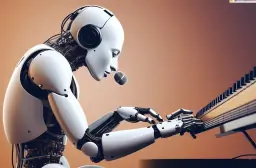How AI Transforms Daily Life: Smart Tech Innovation Unveiled
Table of Contents
Have you ever stopped to think about how much artificial intelligence (AI) influences your daily routines? From the moment you wake up to the time you go to bed, AI-powered solutions are at play, making everyday tasks simpler, faster, and more efficient. But how deeply is AI embedded in our daily lives, and how much is it changing the way we live?
Consider this: your smartphone, voice assistants, smart home systems, even the coffee machine you use each morning—all these devices use AI in some form. Yet, many people don’t realize just how much these technologies are shaping their routines. Could we be at the brink of an even greater AI revolution? Could we be on the cusp of a world where AI personalizes everything, from the way we work to the way we relax?
In this article, we’ll explore the transformative impact of AI on daily life. We’ll uncover how smart technology is reshaping routines, enhancing productivity, and making life more connected than ever before. Let’s dive into the world of AI in everyday life and see how it’s powering the future.
The Role of Artificial Intelligence in Daily Use
AI is not just a futuristic concept—it’s already part of our everyday lives. From the moment we wake up, smart devices begin their tasks, guiding us through our morning routine. Virtual assistants like Siri, Alexa, or Google Assistant are there to help us with anything from setting alarms to answering complex questions. These AI-driven systems continuously learn and adapt to our preferences, becoming more intuitive the longer we use them.
One of the most common applications of AI in daily life is found in smart home systems. Devices like thermostats, lights, and security systems are now powered by AI, allowing for predictive technology that adjusts settings based on your behavior. For example, your thermostat can learn when you’re likely to be home and adjust the temperature for maximum comfort without you needing to lift a finger.
Another area where AI shines is in personal productivity. Tools like AI-driven calendars, email assistants, and task managers help us stay organized by automatically prioritizing tasks, suggesting reminders, and even responding to emails for us. AI is also helping us achieve more with less effort through intelligent automation, saving us time and energy on mundane tasks.
AI and Smart Devices: The Brain Behind the Technology

Smart gadgets are one of the most noticeable ways AI has integrated into our lives. Whether it’s a fitness tracker that monitors your health or a voice assistant that controls your home, AI-powered gadgets are enhancing our routines in unimaginable ways. These devices leverage cognitive computing to understand patterns, learn from user interactions, and make intelligent decisions.
Consider the rise of smartphones. They are no longer just communication tools; they are personalized assistants that manage our schedules, alert us to important events, and even provide tailored recommendations based on our habits. Machine learning in routine applications allows smartphones to anticipate our needs, from suggesting the quickest routes to learning which apps we use the most.
AI-driven lifestyle is also evident in wearable devices. Smartwatches and health trackers monitor vital statistics such as heart rate, sleep patterns, and activity levels. These devices use AI to predict potential health issues and offer suggestions on how to improve well-being. The personalization of these devices makes them invaluable for people looking to optimize their health and fitness.
The Future of AI in Everyday Life
The potential for AI to further revolutionize our daily routines is limitless. In the coming years, we’re likely to see AI-powered solutions become even more personalized, with systems that adapt to individual preferences and needs in real time. Imagine an AI that learns your exact preferences for temperature, lighting, and even entertainment, and adjusts your environment automatically as soon as you enter a room.
The advent of AI-driven smart homes will make it possible for devices to communicate seamlessly with each other. Intelligent systems will connect everything from your refrigerator to your washing machine, creating a fully automated home. This interconnectedness will lead to automated living, where your home anticipates your needs and responds before you even have to ask.
In addition to predictive technology in smart homes, AI personalization will enhance the way we interact with digital content. For instance, AI will tailor news feeds, advertisements, and even TV shows based on our preferences and previous interactions, making the digital world more aligned with our desires.
The Benefits of AI: Convenience and Efficiency

AI’s impact on daily life is not just about convenience—it’s about improving efficiency in almost every aspect of life. Whether it’s AI-powered productivity tools, smart home systems, or virtual helpers, these technologies are designed to make our lives easier, more enjoyable, and less stressful.
For instance, in the workplace, AI-driven software can automate routine tasks such as data entry and scheduling, allowing employees to focus on more important and creative tasks. In the home, AI-powered household appliances like robotic vacuums or AI-enhanced kitchen gadgets can perform tasks automatically, saving time and reducing effort.
In addition, AI efficiency extends to automated tasks. For example, AI systems in smart cars can make driving safer by automatically adjusting speed, braking, or avoiding obstacles. Similarly, AI in robotics in daily life is transforming industries by reducing human labor in areas like manufacturing, agriculture, and logistics.
AI Integration: A Seamless Interaction
One of the most exciting aspects of AI’s impact on daily life is the seamless interaction between humans and machines. Over time, AI has become more intuitive, creating a world where technology feels like an extension of ourselves. Digital assistants are now capable of understanding natural language, making interactions more fluid and less mechanical.
For example, the integration of voice assistants into everyday devices has made it easier to control your environment with simple commands. Whether it’s turning on the lights, adjusting the temperature, or setting a reminder, voice recognition technology powered by AI is changing the way we live. These systems can even understand context, allowing for more personalized experiences based on your past interactions.
AI is also being used to integrate systems across multiple platforms. AI-powered solutions are connecting apps, devices, and services, creating a unified experience. Whether you’re using a smartphone, smart speaker, or laptop, AI ensures that all these devices work together, making life more connected and efficient.
FAQs
What are the most common AI applications in daily life?
AI is widely used in personal assistants, smart home systems, fitness trackers, and productivity tools. It powers everything from voice assistants to predictive technology in smart gadgets.
How does AI improve productivity?
AI helps automate routine tasks like scheduling, email management, and data entry, freeing up time for more creative and valuable activities. AI-powered productivity tools can suggest improvements based on data patterns.
Can AI help with health and wellness?
Yes, AI-driven health gadgets like fitness trackers and smartwatches monitor vital statistics and offer personalized advice, helping users maintain a healthier lifestyle.
How will AI change the future of smart homes?
AI will make homes more intelligent by connecting devices for seamless automation. Homes will anticipate needs and adjust settings for optimal comfort and efficiency.
Conclusion
AI is already reshaping how we live, work, and interact with the world around us. From smart home systems to personalized assistants, AI enhances convenience, productivity, and efficiency in daily life. As AI continues to advance, we can expect even more integration, making life more seamless and connected than ever before.
In the future, the possibilities are endless—AI will transform our homes into intelligent living spaces and make daily tasks even more effortless. It’s clear that AI’s role in daily life is only going to grow, bringing new opportunities for intelligent systems, automated living, and personalized technology.




